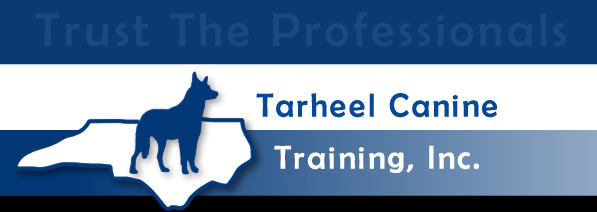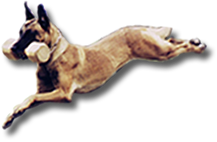Back when I first began training and importing dogs, I had a Dutch Shepherd named Kazan that came in, and I was told he was "leash finished" which means the dog had not been taken to a KNPV trial yet, but had most of the trained behaviors needed to attain such a title. The funny thing was, when he came in, he would bite, retrieve and hunt like a green dog would, but wouldn’t give me any of the trained behaviors he was supposed to have. Naturally I assumed the vendor I got him from was lying (a common occurrance with some of my former vendors). However I was assured it was not the case. Then a funny thing happened. Over time, Kazan let me know he knew more than I thought he did. Suddenly he had an out. Then, one day, a transport showed up where before he would just be dirty, and show no signs of understanding that exercise, and so on. Before I knew it, after some time passed and we developed a relationship outside of training, we not only clicked, but he began to show most of what I expected of him. This happens with most of the titled dogs we bring in as well. They may be very well conditioned to show certain behaviors, but not necessarily for you.
Often I have police departments show up to buy a titled dog, and they are shocked when the dog doesn’t come out of the box and do all of what it says on his scorebook. I have to remind them, that a trained dog, seperate from his old handler, is just a dog with a choice. He has a choice to do for you what he can do. You can try to force it, and maybe he will comply, and maybe he won’t, but don’t put a flat collar on him 2 minutes after meeting him and expect to go to an IPO trial and score what’s in the book! He may also choose to go up the leash instead of comply. He has a choice.
I think sometimes we forget that the relationship between the handler and dog is more than just standing there next to him with a leash in your hand. Especially if the dog has any rank in him at all. Not aggression, but rank as in some self-respect. Do you let a stranger ask/tell you to do something, and then just do it, like you let your wife or girlfriend ask/tell you to do something? Your relationship defines what you each allow in terms of cooperative behavior, like responding to a request/order.
Too often we are so focused on testing a dog, that we forget that dog is an individual and has a way of relating, that we as trainers need to be sensitive to, and tap into to get the most out of him. A titled dog isn’t a machine. My head trainer made the comment that if relationship didn’t matter in the performance of commands, a bad guy could call the police dog chasing him down into a heel and send him back on the the handler! Thankfully, they are not just command-behavior machines.
I am convinced that a lot of the handler aggression cases coming out of K9 classes are the result of the lack of understanding of how to build trust between a handler and a K9. Too much time and effort is spent on command and execution, and not enough time on forming a great relationship, built on mutual respect and most of all trust, from which all else will flow more easily. Simple things can interfere with trust, such as a handler being inconsistent in the application of correction. Just remember a boss you may have had that would allow things one day and then jump all over you the next day for the same mistake, or a boss that communicated with you based on his emotional state of the day. If that unnerved you, and you have the power of reason to understand why it is happenig to you, imagine how unnerving that can be for a simple animal to face such inconsistency.

